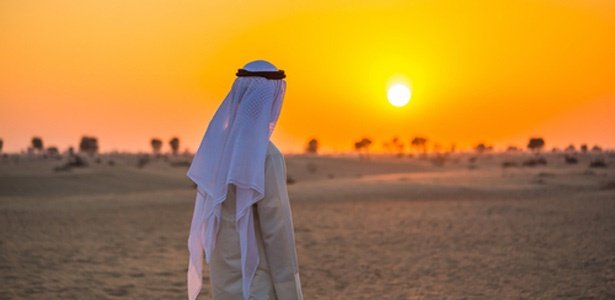Dubai is one of the most vibrant, energetic, global cities in the world with a thriving business and tourism hub. Many wouldn’t believe that it is quite literally built in the desert.
With a relatively short history, the city has become known as a destination for designer shopping, live sporting events and some of the best hotels in the world… but before this all existed, the region was populated by the native Bedouin people.
Bedouin culture
Hospitality is very important to the Bedouin people. They are extremely proud of their religion and culture and like to share it with others. Women, especially, play a very important role in the community. Apart from cooking and looking after the livestock, they also produce the cloth that makes the famous Bedouin Tent. The tend provides shelter from the sun and violent sandstorms and is easily transported as the people migrate across long kilometers in the hot sand.
The tent is large and in the middle is a central place where food and drink is enjoyed. The Bedouins eat simply – as the desert is limited when it comes to fresh ingredients. Dates are a staple item and coffee is sipped first thing in the morning as an accompaniment to these sweet morsels. The bedouin’s camels produce milk – which provides nourishment and energy for travelling long distances. Life in the desert can be harsh but the bedouins are strong bunch!
A traditional Bedouin breakfast
On a recent trip to Dubai, I was treated to a traditional Bedouin breakfast in the desert. Some spicy black coffee to start, with a large date, followed by a plate of sweet noodles with pieces of egg, pancakes called “moraras” and herb-filled pastries. Carbo-loading at its best! All food is cooked over an open fire and gives the food a distinct smoky flavour. The bedouins are also fond of eating rice and a mixture of vegetables in a tasty sauce.
A trip to the desert is not complete without a ride on a camel!
Disclaimer: Food24’s trip to Dubai was paid for by Dubai Tourism.

